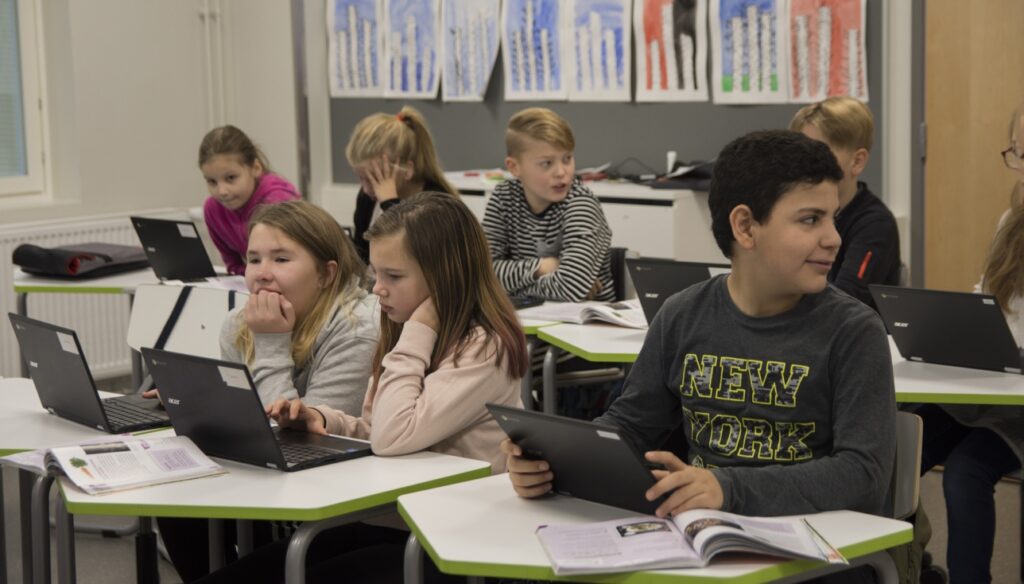EDUCATION

In Finland all people have equal access to high-quality education and training. The same opportunities should be available to all citizens irrespective of their ethnic origin, age, wealth or where they live. Finnish education policy is built on the principle of lifelong learning.
This basic right is recorded in the Constitution and public authorities must secure equal opportunities for every resident in Finland to get education also after compulsory schooling.
The Finnish education system is composed of:
- nine-year basic education (comprehensive school) for the whole age group, preceded by one year of voluntary pre-primary education
- upper secondary education, comprising general education and vocational education and training (vocational qualifications and further and specialist qualifications)
- higher education, provided by universities and universities of applied sciences
In basic education the local and school curriculum is based on a national core curriculum. Completing the basic education syllabus does not lead to any qualification, but the school-leaving certificate provides a possibility to access upper secondary education or training. Nearly all children complete their compulsory schooling.